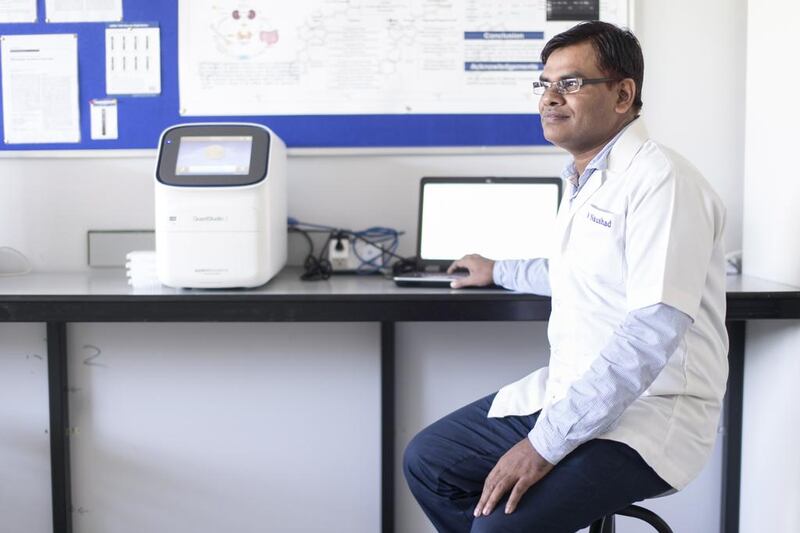DUBAI // A study of 500 Emiratis by two university research teams has established a link between Type 2 diabetes and genetics.
Type 2, highly prevalent in the UAE, is known as a lifestyle disease, but a collaboration between Manipal University in Dubai and Khalifa University in Abu Dhabi found links between the disease and genes that cause obesity and high blood pressure.
Dr Naushad Rais, assistant professor at the School of Life Science at Manipal University, said: “We found that the environment a patient is in puts them at more risk but they were already susceptible because of changes in the genes,” he said.
“We say this group was high-risk not only because of lifestyle but the interaction of a number of genes as well.”
It was the first study of its kind among the Emirati population.
“It is no longer enough to say it’s a lifestyle disease but mutations of genes could put a person at risk and in addition, the lifestyle could be an additional factor,” said Dr Rais. “Some people have a very bad lifestyle and don’t have diabetes, so the two things needed to be seen together.”
He is working with Emirati biotechnology expert Dr Habiba Alsafar at Khalifa University, who has been working on genome research involving Emiratis.
Dr Alsafar, director of Khalifa University’s biotechnology centre, said: “The characteristics of the Arab [local] population make them ideal for the study of complex, polygenic, multifactorial disorders such as diabetes due to consanguineous marriages, high birth rates and lack of physical exercise.”
Dr Alsafar said an earlier age of onset is becoming more common as a result of changes in lifestyle and behaviour in tandem with genetic predispositions to the illness.
“Our findings call for the need of further replication in other ethnic groups,” she said. “As we uncover more variants, we will gain a better basic understanding of Type 2 diabetes among the Arab population, which in turn will open doors to unimagined areas of research.”
Dr Firdos Khan, head of the School of Life Science at Manipal University, said the research was very valuable to the UAE given the high prevalence of the disease here.
Diabetes UAE said that research by the International Diabetes Federation suggested that 19.3 per cent of the UAE population is living with diabetes, which affects 415 million people worldwide.
Dr Khan said: “If there is a correlation between genetics and Type 2 diabetes, this is an indicator for prevention and treatment.”
He would like to see a larger sample and make testing compulsory, as was the case with thalassaemia for all Emiratis.
“If you look at the UAE, a lot of genetic disorders are caused by consanguinity which has caused a lot of genetic pooling,” he said.
“The mutation changes become much higher than diverse populations.”
mswan@thenational.ae





